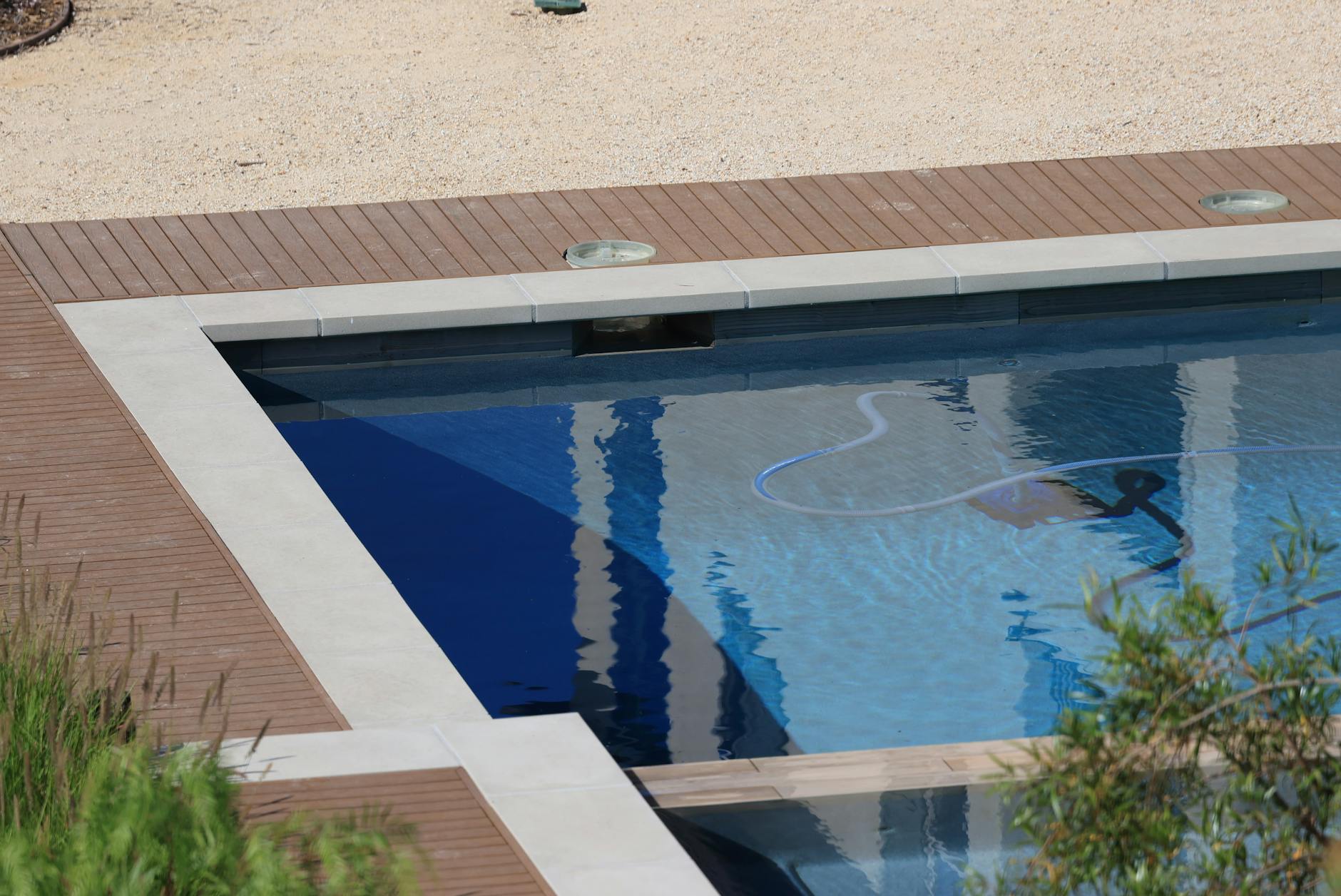
Starting your own pool cleaning business can be a rewarding and profitable venture, particularly in areas where swimming pools are common, such as warmer states like Florida, Texas, California, and Arizona.
In the U.S., the demand for pool maintenance services is constant, with residential and commercial pool owners requiring regular cleaning, chemical balancing, and repairs to keep their pools functional and safe. Learning how to start a pool cleaning business requires some initial research and planning, but with dedication, you can build a successful and thriving enterprise.
This blog post will walk you through every essential step, from creating your business plan to acquiring clients, marketing your services, and scaling your pool cleaning business over time.
Table of Contents
1. Understanding the Pool Cleaning Industry
Before diving into the logistics of how to start a pool cleaning business, it’s crucial to have a solid understanding of the pool cleaning industry in the United States. Pool cleaning services typically involve tasks such as:
- Skimming and vacuuming debris from the pool.
- Brushing walls, steps, and surfaces to prevent algae growth.
- Checking and maintaining proper chemical levels (chlorine, pH, alkalinity).
- Emptying skimmer and pump baskets.
- Inspecting and maintaining pool equipment (pumps, filters, heaters).
According to industry reports, the U.S. pool cleaning market is expected to grow as more homeowners prioritize maintaining clean, safe pools. Additionally, commercial pools at hotels, gyms, and public facilities represent a steady source of demand. The ability to offer a range of services—such as routine cleanings, seasonal maintenance, or repairs—will enhance your appeal to a broader clientele.
2. Creating a Business Plan
When learning how to start a pool cleaning business, the first essential step is creating a comprehensive business plan. A business plan will help you define your objectives, outline your services, and estimate your startup costs and ongoing expenses. The key components of your pool cleaning business plan should include:
a. Market Research
Start by conducting research on your local market. Understanding your competition and identifying your target customers will give you insight into how to position your business. Some questions to consider:
- Who are your main competitors, and what services do they offer?
- What’s the average price for pool cleaning services in your area?
- Are there unmet needs in the market, such as same-day service, eco-friendly cleaning options, or commercial pool cleaning?
To get detailed data on the pool cleaning industry, you can access resources like the U.S. Small Business Administration (SBA).
b. Defining Your Services and Pricing
In your business plan, clearly outline the services you will offer. These could include:
- Weekly or biweekly pool cleaning services.
- Seasonal pool opening and closing.
- Chemical balancing and water testing.
- Repairs and equipment maintenance.
Once you’ve defined your services, set your pricing. A good starting point is to research local competitors and determine a competitive rate. Most pool cleaning services charge between $80 and $150 per visit for residential pools, depending on the size and complexity of the pool. For commercial pools, rates can be higher due to the larger size and frequency of maintenance required.
c. Financial Plan and Budgeting
Create a detailed budget for your startup costs and ongoing expenses. Common expenses in a pool cleaning business include:
- Equipment and supplies (nets, vacuums, chemicals).
- Business registration fees and insurance.
- Marketing and advertising costs.
- Vehicle expenses (fuel, maintenance).
To cover startup costs, consider saving personal funds or applying for a small business loan through your bank or the SBA.
Also Read: How to Start a Flower Business
3. Registering Your Pool Cleaning Business and Legal Requirements
Once you’ve developed a business plan, the next step in how to start a pool cleaning business is ensuring that you meet all legal requirements. Every U.S. state has different regulations regarding business registration and licenses, so it’s essential to check with your state and local authorities to comply with all laws.
a. Choose a Business Structure
One of the first decisions you’ll make is choosing a legal structure for your pool cleaning business. Common structures include:
- Sole Proprietorship: Simple and easy to set up, but you’re personally liable for any debts or lawsuits.
- Limited Liability Company (LLC): Offers liability protection for your personal assets while allowing flexible management and taxation. This is a popular choice for small businesses.
- Corporation: Best suited for larger businesses, offering more liability protection but requiring more paperwork and formalities.
For detailed information on choosing a business structure, visit the IRS website.
b. Obtain Necessary Licenses and Permits
In most states, you’ll need to apply for a general business license to legally operate your pool cleaning business. You may also need specific certifications for handling and disposing of pool chemicals like chlorine. Additionally, some cities may require you to obtain a “pool contractor’s license” to perform maintenance on commercial properties. Check your state’s licensing requirements through the SBA website.
c. Insurance
Insurance is a critical aspect of running a pool cleaning business, protecting you from potential liabilities. There are several types of insurance you’ll need to consider:
- General Liability Insurance: Protects you if a client’s property is damaged during a pool cleaning or if someone is injured due to your services.
- Workers’ Compensation Insurance: Required if you hire employees, covering medical costs and lost wages if they’re injured on the job.
- Commercial Auto Insurance: If you use a vehicle for your business, you’ll need commercial auto insurance to cover accidents or damage related to business use.
You can find detailed insurance requirements on the Insureon website.
4. Purchasing Pool Cleaning Equipment and Supplies
The next step in understanding how to start a pool cleaning business is acquiring the necessary equipment and supplies. Pool cleaning requires specialized tools and chemicals to ensure pools are properly maintained. Here’s a list of essential items you’ll need to get started:
- Pool skimmers and nets: For removing debris like leaves, insects, and dirt from the water’s surface.
- Pool vacuum system: To clean the bottom and walls of the pool, removing dirt, algae, and other buildup.
- Water testing kits: Used to measure the chemical levels (pH, chlorine, alkalinity) to ensure the water is safe for swimming.
- Brushes and scrubbers: For cleaning the pool walls, steps, and other surfaces.
- Chemicals: Such as chlorine, algaecide, pH balancers, and stabilizers to keep the water clean and safe.
- Pool filter cleaners and lubricants: To maintain the pool’s filtration system.
Invest in quality equipment that will last. You can purchase these items from specialized pool supply stores or wholesalers. Websites like In The Swim and Leslie’s Pool Supplies offer a wide range of pool cleaning supplies.
5. Setting Up Your Pool Cleaning Business
Now that you’ve acquired your equipment, it’s time to set up your pool cleaning business. Whether you operate out of a home office or rent a small commercial space, the following steps will help you establish a functional workspace.
a. Branding and Business Name
Your business name and branding play a significant role in attracting customers. Choose a name that’s easy to remember and reflects the nature of your services, such as “Crystal Clear Pool Services” or “Blue Wave Pool Cleaners.” Once you’ve selected a name, design a professional logo and establish a consistent brand identity across your website, business cards, uniforms, and vehicles.
b. Creating a Website
Having a professional website is essential for any pool cleaning business. Your website will serve as a hub where potential clients can learn about your services, request quotes, and schedule appointments. Make sure to include:
- A clear description of your services.
- Contact information and business hours.
- An online booking system.
- Customer reviews and testimonials.
- A blog section with tips for pool maintenance to attract organic traffic.
You can easily create a website using platforms like Wix or WordPress.
c. Managing Your Finances
Proper financial management is critical when running your pool cleaning business. Use accounting software like QuickBooks or FreshBooks to track expenses, manage invoices, and monitor your cash flow.
Open a separate business bank account to keep your personal and business finances separate. This will make it easier to track income and expenses and file taxes. Additionally, consider working with an accountant to ensure you’re compliant with tax laws and to help maximize deductions.
6. Marketing Your Pool Cleaning Business
Understanding how to start a pool cleaning business also involves mastering marketing strategies to attract clients and grow your business. Here are some effective marketing techniques for pool cleaning businesses:
a. Local SEO and Google My Business
Since pool cleaning is a local service, optimizing your website for local search is crucial. Claim your business listing on Google My Business to appear in local search results. Include your location, services, and contact details. Encourage satisfied clients to leave positive reviews, as customer reviews help boost your rankings in local searches.
b. Social Media Marketing
Social media platforms like Facebook and Instagram are excellent for showcasing your pool cleaning services. Post before-and-after photos of cleaned pools, share customer testimonials, and run targeted ads to reach homeowners in your area. Consider creating a YouTube channel with DIY pool maintenance tips to build authority and attract new clients.
c. Flyers and Direct Mail
Traditional marketing methods like flyers, door hangers, and direct mail can also be highly effective, especially in neighborhoods with a high concentration of pools. Design eye-catching flyers with details about your services and special offers, and distribute them in areas with large residential pools.
d. Networking and Referrals
Building relationships with local businesses like pool supply stores, home improvement companies, and real estate agents can lead to referrals. Offering referral discounts to current clients can also encourage them to recommend your services to friends and family.
Conclusion: The Path to Success
Learning how to start a pool cleaning business takes time, dedication, and planning. By following these steps, you’ll be well on your way to establishing a successful and profitable pool cleaning business in the U.S. From creating a business plan and acquiring the right equipment to marketing your services and building a client base, every step is crucial for long-term success. Remember, consistent service, professionalism, and ongoing education in pool maintenance will set you apart from your competition.
FAQs
1. How much does it cost to start a pool cleaning business? The startup cost for a pool cleaning business typically ranges from $2,000 to $10,000, depending on the equipment, vehicle, and licensing fees.
2. Do I need certifications to start a pool cleaning business? While certification is not always required, obtaining certifications from organizations like The National Swimming Pool Foundation (NSPF) can help build credibility and ensure you’re well-versed in pool safety and chemical handling.
3. How do I find clients for my pool cleaning business? Utilize a combination of online marketing (local SEO, social media) and traditional methods (flyers, direct mail, referrals) to reach potential customers.
4. Is pool cleaning a profitable business? Yes, pool cleaning can be highly profitable, especially in areas with high demand. Consistent clients and offering additional services like repairs and seasonal maintenance can significantly increase profitability.
5. What skills do I need to start a pool cleaning business? Basic knowledge of pool maintenance, chemical balancing, and equipment repair is essential. Strong customer service and time management skills are also important for running a successful business.
